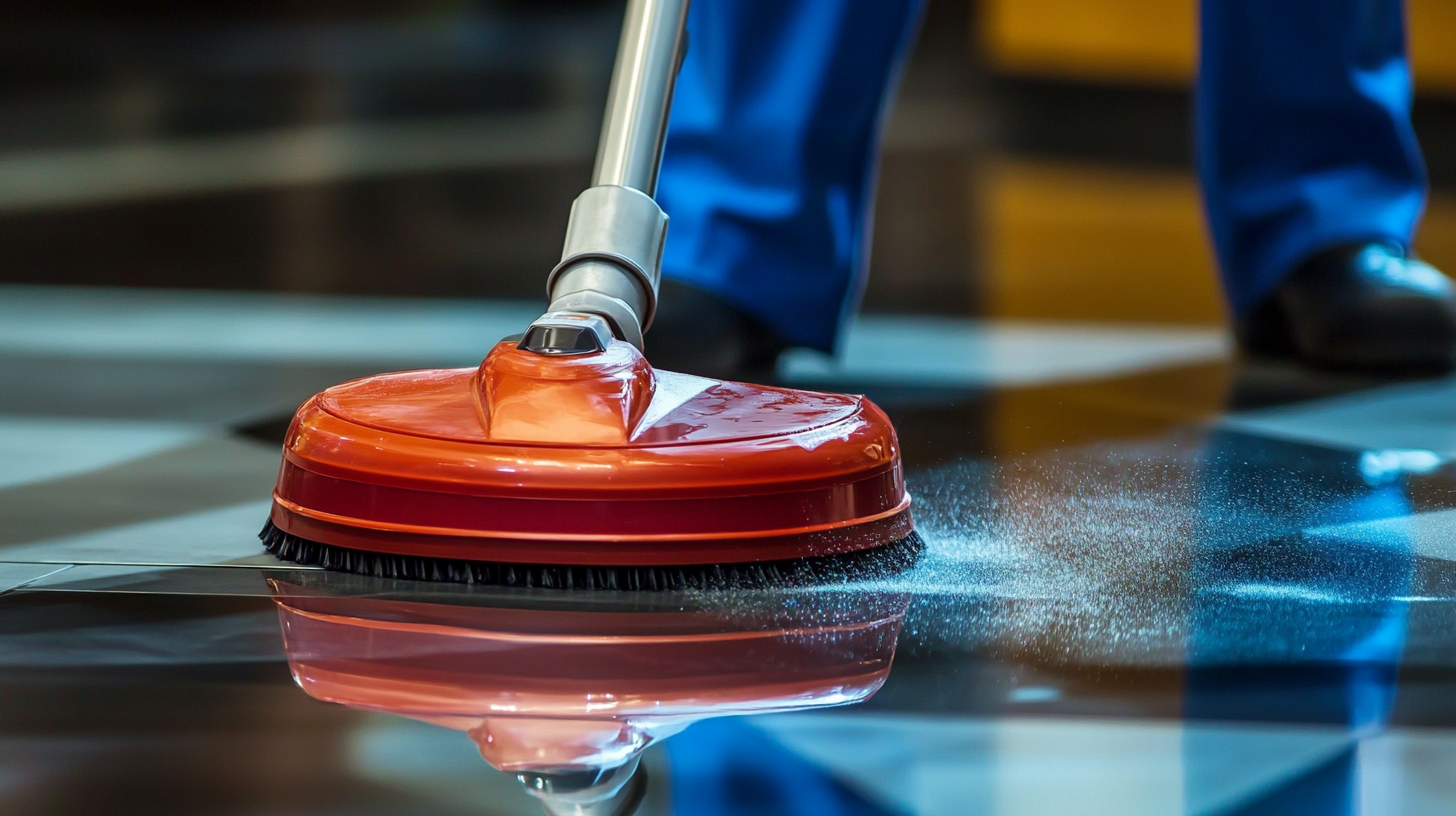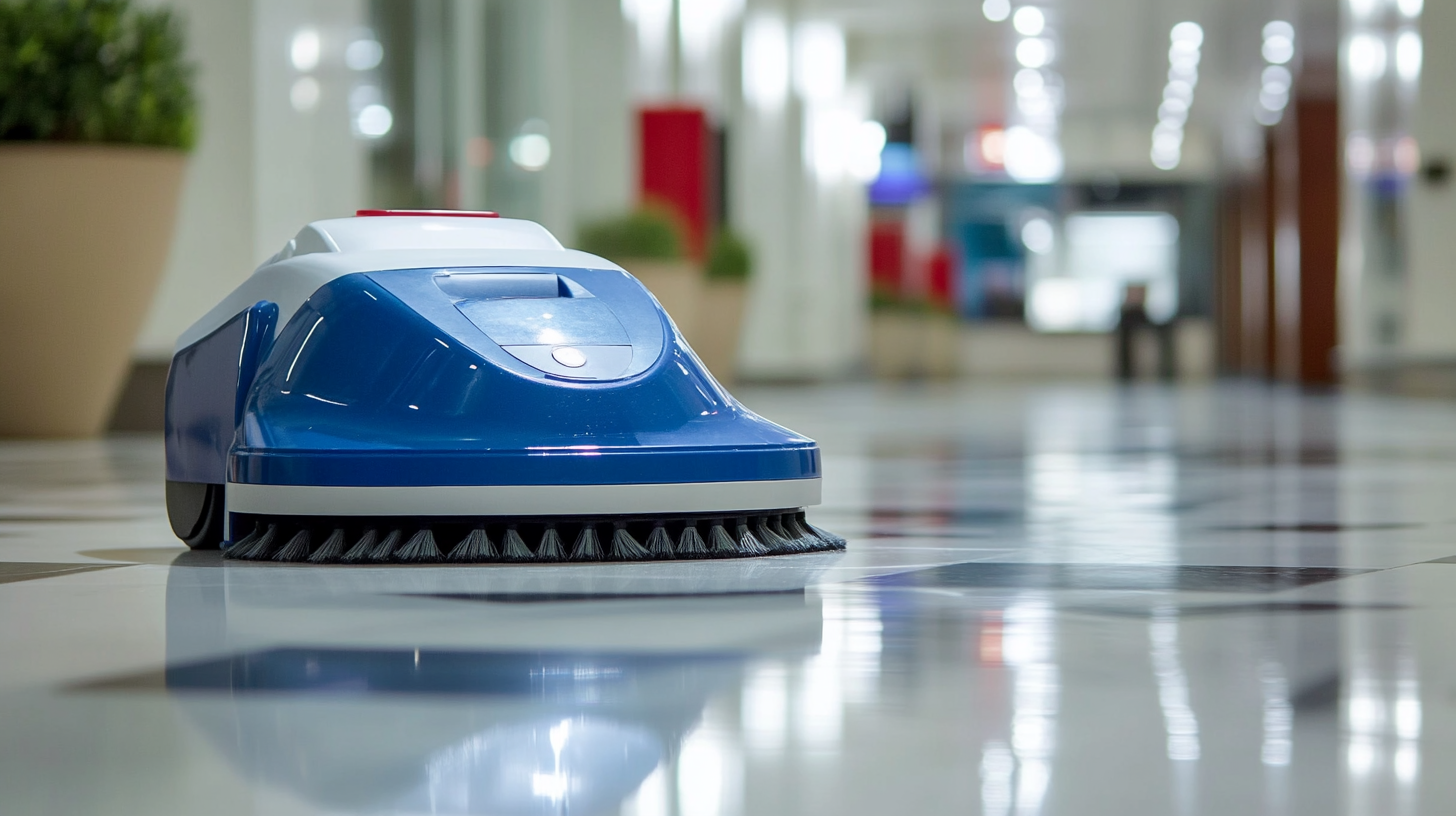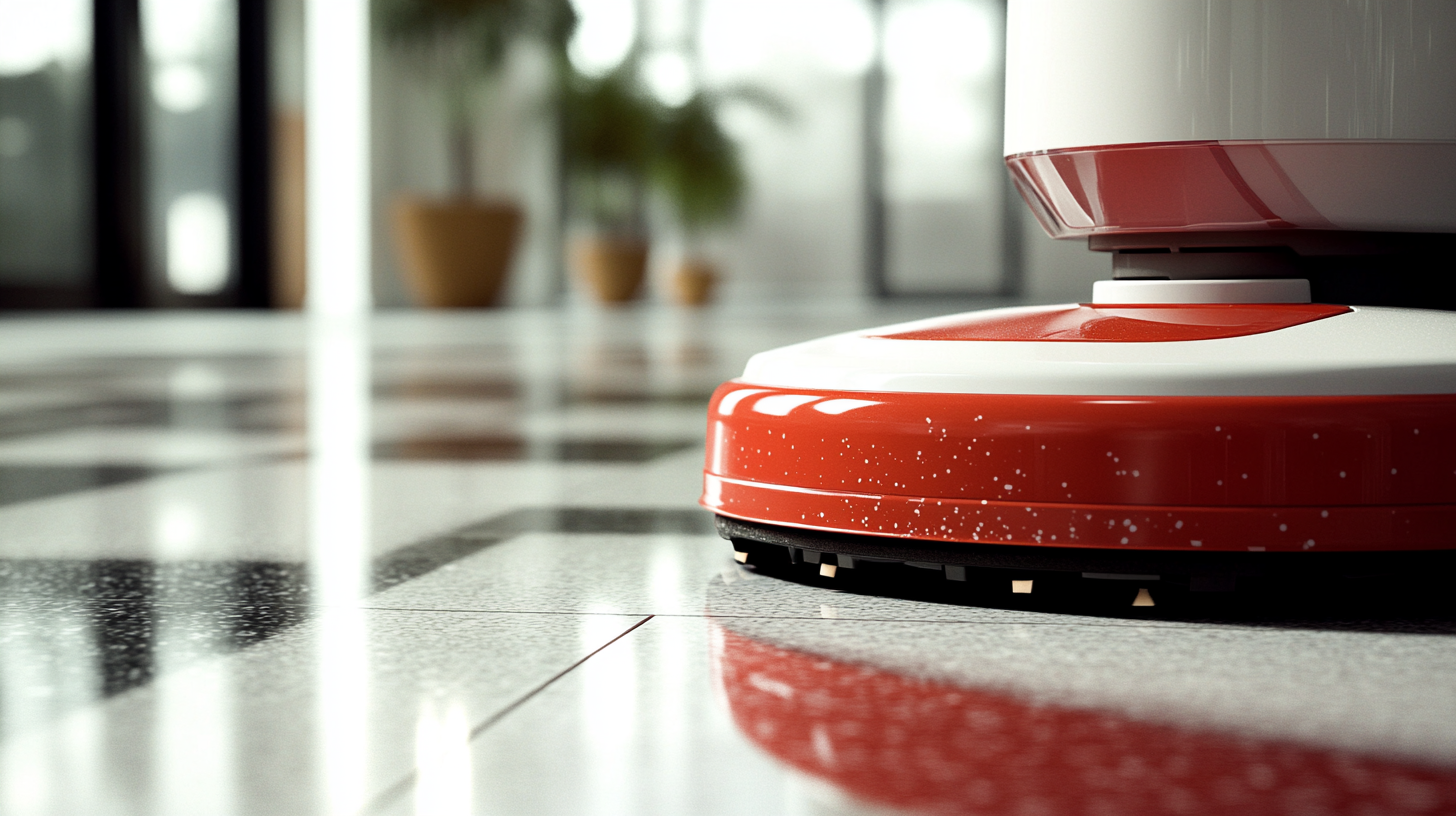Inquiry
Form loading...
In today's fast-paced world, maintaining a clean living environment is paramount, and the right tools can make all the difference. Among these, the Floor Cleaner Machine stands out as an essential asset for both households and commercial spaces. However, with a myriad of options available on the market, selecting the best floor cleaner machine can be overwhelming. This ultimate guide aims to equip you with effective strategies to pinpoint the perfect cleaning machine tailored to your specific needs. Whether you're dealing with stubborn stains, pet hair, or general grime, understanding the features and functions of various models can greatly enhance your cleaning efficiency. Join us as we dive into the key considerations, comparisons, and expert tips that will empower you to make an informed decision, ensuring that your floors remain spotless and inviting.

When selecting the best floor cleaner machine, understanding the importance of certifications is crucial. Certifications are essential indicators of a product's reliability, safety, and effectiveness in cleaning. Machines that bear reputable certifications, such as those from organizations like the Carpet and Rug Institute (CRI) or the Institute of Inspection, Cleaning and Restoration Certification (IICRC), often adhere to rigorous testing standards. This ensures that they perform well in real-world scenarios, maintain safety protocols, and meet environmental considerations.
**Tips:** Before making a purchase, ensure the machine you’re considering has the necessary certifications. Always check for reviews and feedback from industry professionals to gauge its performance in various cleaning tasks. Additionally, look for machines that offer a warranty, as it often reflects the manufacturer's confidence in their product's quality and durability.
Opting for a certified floor cleaner can also provide peace of mind regarding compliance with industry regulations. Machines that prioritize eco-friendly practices are increasingly in demand, as sustainability becomes a vital consideration for many businesses. Thus, paying attention to certifications can not only help in selecting an efficient machine but also in choosing one that aligns with ethical cleaning practices.
This chart illustrates the number of floor cleaner machines certified under different certification standards. Selecting a machine with recognized certifications can greatly impact its effectiveness and compliance with industry standards.
When selecting the ideal floor cleaner machine, understanding the key features is crucial for optimal performance and efficiency. One of the primary aspects to consider is the type of cleaning technology employed. According to a recent market report by Grand View Research, demand for advanced cleaning technologies, such as steam cleaning and robotic systems, is skyrocketing, with a projected CAGR of 8.5% over the next five years. These technologies not only enhance cleaning effectiveness but also contribute to a more sustainable approach by reducing the need for harsh chemicals.
Another critical feature is the machine's versatility. A study by Statista indicates that 64% of consumers prioritize floor cleaners that can tackle various surfaces, including hardwood, tile, and carpets. This adaptability ensures that a single machine can cater to multiple cleaning needs, boosting its value. Additionally, ergonomic design and ease of maneuverability are essential for user comfort and efficiency, particularly in commercial settings.
Machines with adjustable handles and lightweight bodies reduce user fatigue, as noted in a survey from Cleaning & Maintenance Management, which found that ergonomic features can enhance productivity by up to 20%. By focusing on these key attributes, consumers can make informed choices and invest in floor cleaner machines that meet their specific needs.
When it comes to selecting the best floor cleaner machine, understanding the various types available is crucial. There are three primary categories: upright, canister, and robotic floor cleaners. Upright cleaners are powerful and efficient for large areas, making them ideal for carpeted homes. Canister models, on the other hand, offer versatility and are perfect for cleaning hard-to-reach areas and different floor types. Lastly, robotic cleaners provide convenience and save time, as they can autonomously navigate and clean your floors.
**Tip:** When choosing a machine, consider the size of your space and the type of flooring. For homes with mixed flooring, a canister vacuum may provide the best flexibility.
Additionally, effectiveness is a key determining factor. Some models come with advanced features such as steam cleaning, which is excellent for sanitizing surfaces without using harsh chemicals, or specialized brushes that target pet hair or allergens.
**Tip:** Look for reviews that highlight performance on specific floor types. This real-world feedback can guide you toward a machine that will meet your cleaning needs effectively. Overall, understanding the strengths and weaknesses of each machine will aid in making an informed decision.

When evaluating the performance of floor cleaner machines, several key criteria come into play. First and foremost, consider the machine’s cleaning efficacy. Look for models that showcase strong suction capabilities and effective brush systems, which are vital for deep cleaning different floor types, from hardwood to tile. Reading user reviews and expert opinions can provide insights into how well a machine handles various messes, including embedded dirt and stubborn stains.
Durability is another essential factor in your assessment. A reliable floor cleaner should be constructed with high-quality materials that can withstand frequent use. Check for warranties and customer service options, as these often indicate a manufacturer’s confidence in their product's longevity. Additionally, it's beneficial to examine the design features such as ease of assembly, maintenance requirements, and the availability of replacement parts. These elements not only affect the performance but also influence the overall ownership experience, ensuring that your investment stands the test of time.
| Model | Cleaning Width (inches) | Tank Capacity (gallons) | Weight (lbs) | Runtime (minutes) | Durability Rating (1-5) | Performance Rating (1-5) |
|---|---|---|---|---|---|---|
| Model A | 12 | 2 | 15 | 40 | 4 | 5 |
| Model B | 14 | 1.5 | 12 | 30 | 5 | 4 |
| Model C | 16 | 2.5 | 18 | 50 | 3 | 4 |
| Model D | 10 | 1 | 8 | 25 | 2 | 3 |
| Model E | 14 | 2 | 14 | 45 | 5 | 5 |
Maintaining your floor cleaner machine is essential to ensure its longevity and optimal performance. Regular cleaning of the machine's components can prevent dust and debris build-up, which may hinder its efficiency. Start by disconnecting the power source and emptying the dirty water tank after each use. Rinsing the tank and brushes under warm water will help remove any residue that can affect their performance. Additionally, check for clogs in hoses or filters regularly, as these can diminish suction power and overall cleaning effectiveness.
Another crucial aspect of maintenance is timely inspections of the machine's parts. Look for any signs of wear or damage, particularly on the brushes and belts. Replacing worn-out components promptly can save you from more costly repairs down the line. Furthermore, ensure that all screws and fasteners are tightened correctly to prevent mechanical issues. By implementing these simple maintenance tips, you can keep your floor cleaner machine running efficiently for years, ensuring that your floors remain spotless and well-maintained.

